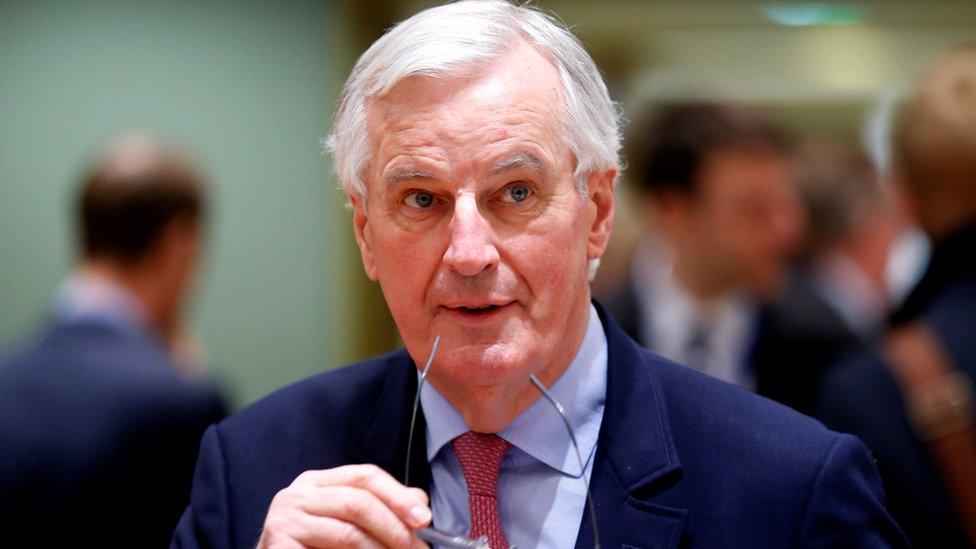Brexit: Ministers suffer first defeat on EU Withdrawal Bill
- Published
- comments
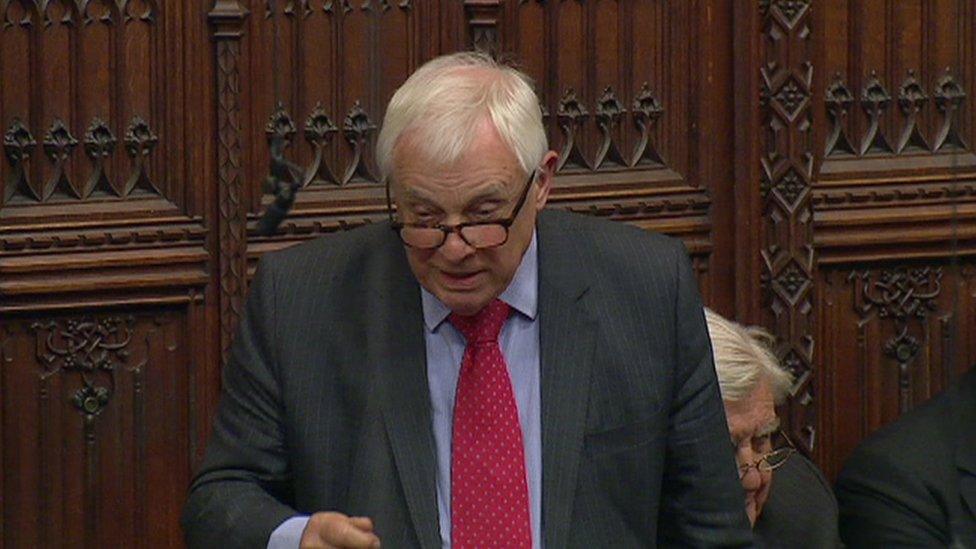
Lord Patten was among two dozen Conservative peers to defy the party whip
Peers have defeated the government on the issue of staying in a UK-EU customs union after Brexit.
Lords voted by 348 to 225 in favour of a plan requiring ministers to report on steps to negotiate a continued union.
Backing it, ex-EU Commissioner Lord Patten said the UK would be worse off unless current arrangements continued.
But Brexit minister Lord Callanan said it required the government to report on the steps taken towards an objective it has "clearly ruled out".
Number 10 argues that remaining in the customs union would prevent the UK from signing third-party trade agreements with countries across the world.
Lord Callanan signalled the government's intention to overturn the measures at a later stage, saying before the vote it had no intention to "reflect further" on the matter.
Serial rebel
The defeat is the first of several expected as the House of Lords - in which the government does not have a majority - debates the government's flagship EU Withdrawal Bill in detail.
The bill will end the supremacy of EU law in the UK while ensuring existing laws passed since the UK's entry in 1973 continue to apply.
A total of 24 Conservatives voted against the government on the customs union amendment, including former ministers Lord Heseltine, Lord Lansley and Lord Willetts.
Serving notice that he would be a serial rebel during the bill's passage, the former EU commissioner said: "There are times in one's political career where what is alleged to be party loyalty comes way behind trying to stand up for the national interest."
However, former Conservative Chancellor Lord Lawson said Lord Patten was putting forward a "political argument dressed up as a trade argument" and it amounted to a "wrecking amendment".
Remaining in a customs union while leaving the EU would leave the UK in a "quasi-colonial" status, he said.
"I can see there are political reason for remaining in the EU, but I think the political reasons for leaving are much stronger. But what it is absolute nonsense to suggest is that there is an economic case for what is being proposed."
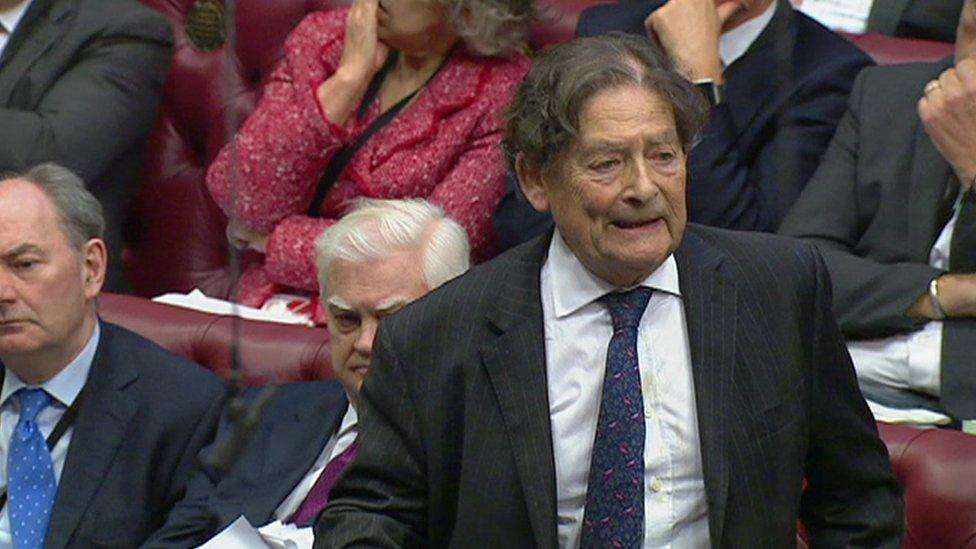
The former chancellor said the financial arguments were "economic nonsense"
Lord Forsyth went further, suggesting it was a plot by "Remainers in this House, who are the majority, who refuse to accept the verdict of the British people - and I believe they are playing with fire".
"I say to colleagues in this House, 'Have a care to what we are doing.' We are an unelected house, and this amendment [is] part of a campaign which is putting peers against the people."
Tory MP and Remain supporter Anna Soubry tweeted that the Lords had "put their country first", and called on her colleagues in the Commons to back them when the amendment returns.
Allow X content?
This article contains content provided by X. We ask for your permission before anything is loaded, as they may be using cookies and other technologies. You may want to read X’s cookie policy, external and privacy policy, external before accepting. To view this content choose ‘accept and continue’.

Labour's Chuka Umunna also praised the vote, saying it had given the House of Commons a "great opportunity" to discuss the impact of leaving the customs union.
Allow X content?
This article contains content provided by X. We ask for your permission before anything is loaded, as they may be using cookies and other technologies. You may want to read X’s cookie policy, external and privacy policy, external before accepting. To view this content choose ‘accept and continue’.

But a statement from the Department for Exiting the EU said the fundamental purpose of the bill was to prepare the UK's statute book for exit day, not about the terms of departure.
"This amendment does not commit the UK to remaining in a customs union with the EU, it requires us to make a statement in Parliament explaining the steps we've taken," a spokesman said.
"Our policy on this subject is very clear. We are leaving the customs union and will establish a new and ambitious customs arrangement with the EU while forging new trade relationships with our partners around the world."

Analysis: By BBC political correspondent Ben Wright
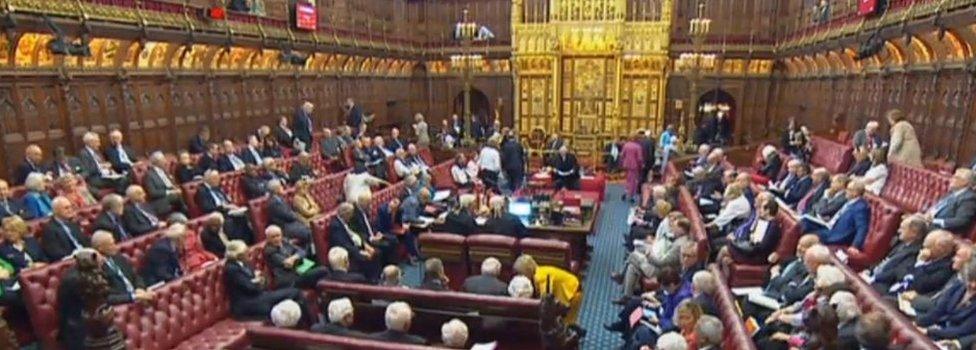
Peers turned out in force on Wednesday to wrestle with a question the government insists is settled - whether or not the UK should form a customs union with the EU after Brexit.
It is one of the government's negotiating red lines that Britain must not remain in any sort of customs union.
However, Labour believes the creation of a new union would keep goods flowing freely without tariffs and provide a workable solution to the Irish border issue.
Many Tory peers strongly criticised Wednesday's amendment as an attempt by Remain supporters in the Lords to wreck the Bill and tie the hands of negotiators.
But a number of Conservatives, combined with opposition parties, inflicted a heavy defeat on the government and the issue will now have to return to the House of Commons.
What will be crucial then is how many Tory MPs align with Labour to try and force a change to the government's policy.

The government also lost a vote against a second amendment aimed at ensuring that existing protections from EU law cannot be changed - except by primary legislation - which would require any changes to go through both the Commons and the Lords.
Lord Callanan said the government had already taken steps to address concerns around employment, equality, and health and safety laws, "potentially in ways that are even stronger than the amendment".
But Labour's Lady Hayter, who proposed the change, said there were "parts of the government that appear a bit more deregulation obsessed".
After the debate, peers voted by 314 to 217 in favour of the amendment.
Other potential flashpoints in the bill include amendments relating to Northern Ireland and a plan to scrap the government's decision to fix Brexit for 23:00 GMT on 29 March, 2019.
- Published15 April 2018
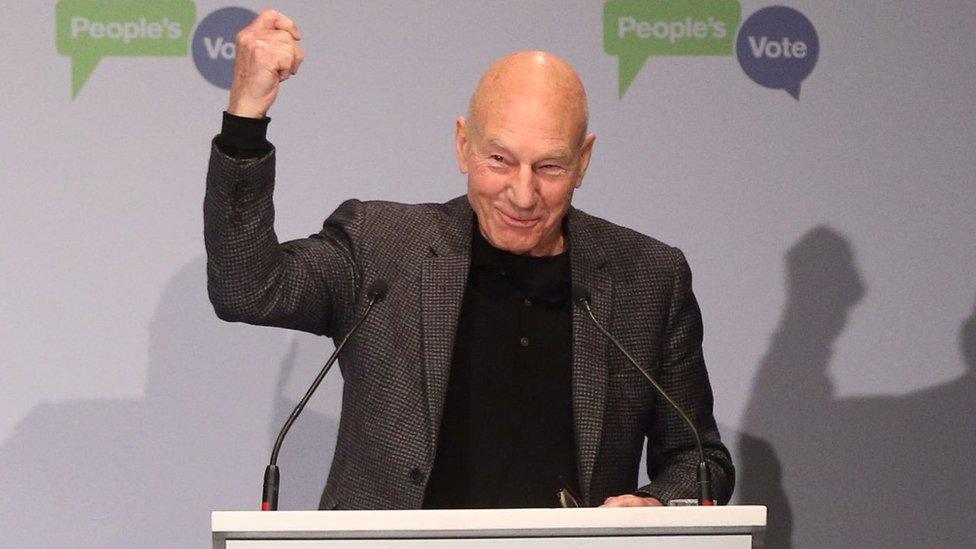
- Published11 April 2018
